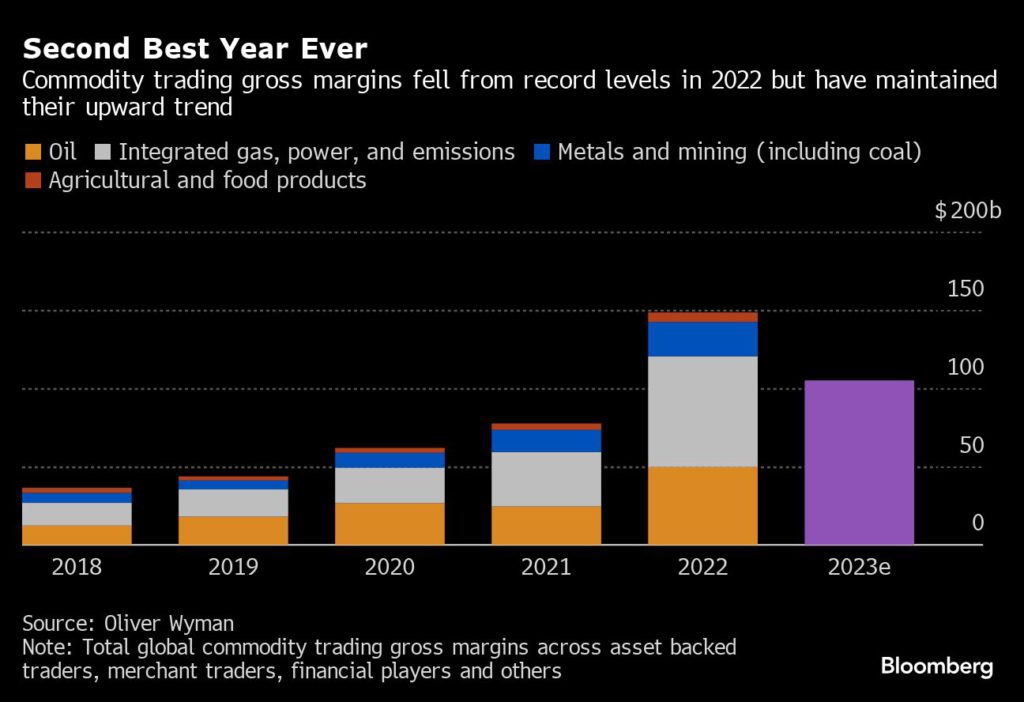Global commodity trading profits topped $100 billion for second-best year ever

The commodity trading industry reaped its second-best year ever in terms of profits, banking over $100 billion and building up a mountain of cash to spend on assets and breaking into new markets.
While earnings fell from 2022’s blockbuster records, profits across the sector still easily eclipsed prior highlights such as in 2008-2009, according to analysis from consultancy Oliver Wyman LLC.
“We saw pretty good margins overall and that is practically because things continue to be a little bit tight on the supply-demand side,” consultant Adam Perkins said in an interview.
Results for many players across the industry are not yet public, but profits at the biggest independent trading houses are expected to show an average drop of over 30% from 2022’s record levels, the report shows.

Still, disruptions and supply shortages of diesel and fuel oil offset lower Russia-related volatility in crude oil, while margins trading gas and power also remained relatively high.
The firms that buy, store and ship the world’s resources are coming out of what was the most profitable period in their history with a huge war chest to cement their role as strategic providers of energy, metals and food as the West continues a stuttering transition away from fossil fuels — demand for which continues to grow the world over.
They’ve already bought oil refineries, storage assets, power plants, and even other trading companies, while receiving large amounts of backing from countries like Italy, Germany, the US and Saudi Arabia to guarantee supplies of essential commodities like gas and copper.
“Traditionally this position in energy security wouldn’t have been held by an independent trader,” Perkins said, but they’re being “drawn into that role.”
Meanwhile, through share buybacks and dividend pay-outs, the executives who own shares or are partners in these mostly private companies, have also become multi-millionaires in the process. That’s helping accelerate a shift at the top of some of these firms’ as minted traders retire, passing management on to a new guard.
“I think it’s a great opportunity for those people who are coming in, it’s also a little bit nerve wracking – there’s an increased amount of scrutiny – everyone wants to continue the legacy,” said Perkins.
(By Archie Hunter)
{{ commodity.name }}
{{ post.title }}
{{ post.date }}




Comments
Pete Blakeley
Important to remember that a dollar isn’t worth what it used to be. Therefore a large number (100 billion) may be a bit misleading. Would like to see what the impact of this inflation is in 1970 dollars.
Maybe there is some truth to the concapt of inflating yourself out of debt!